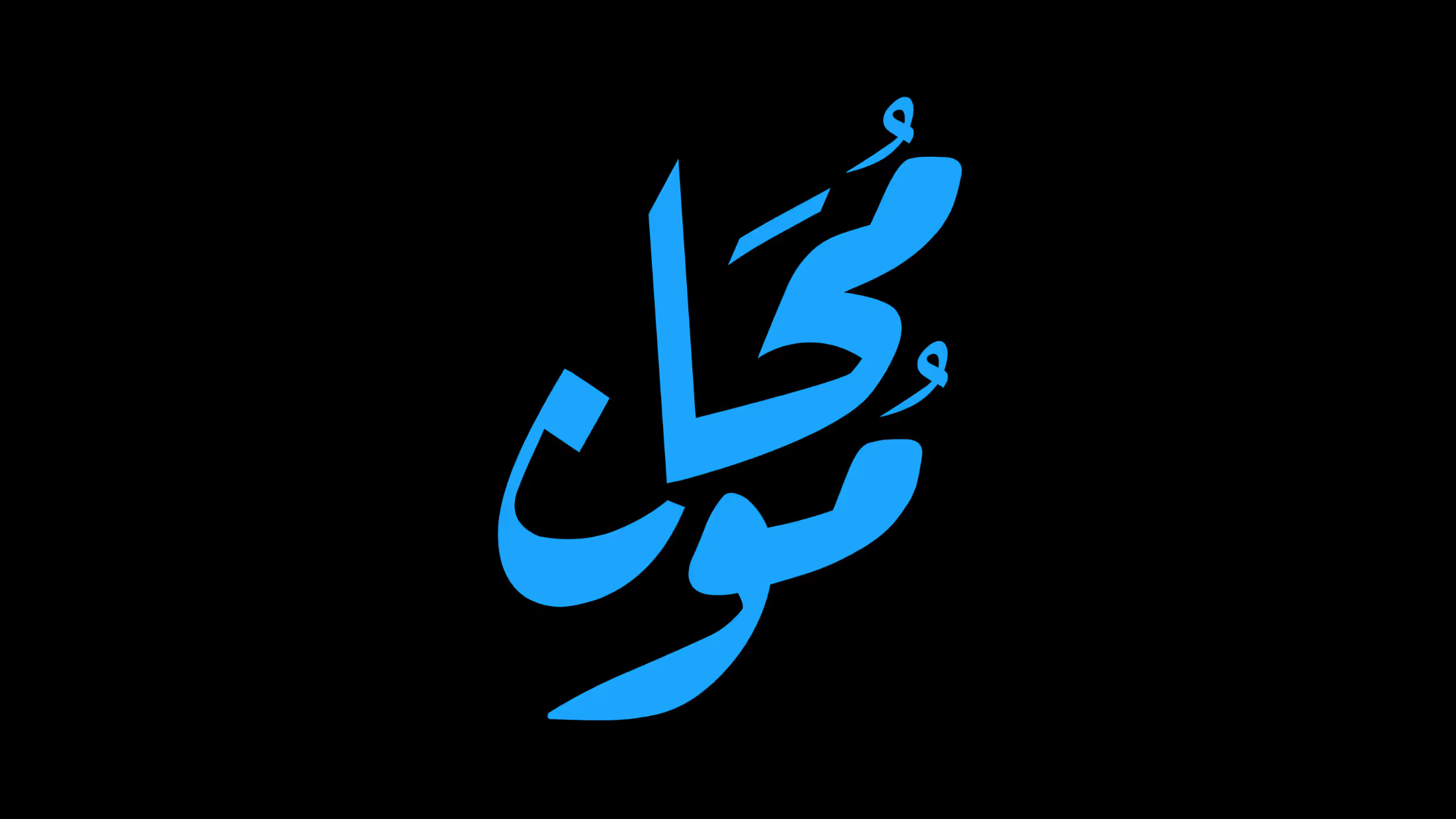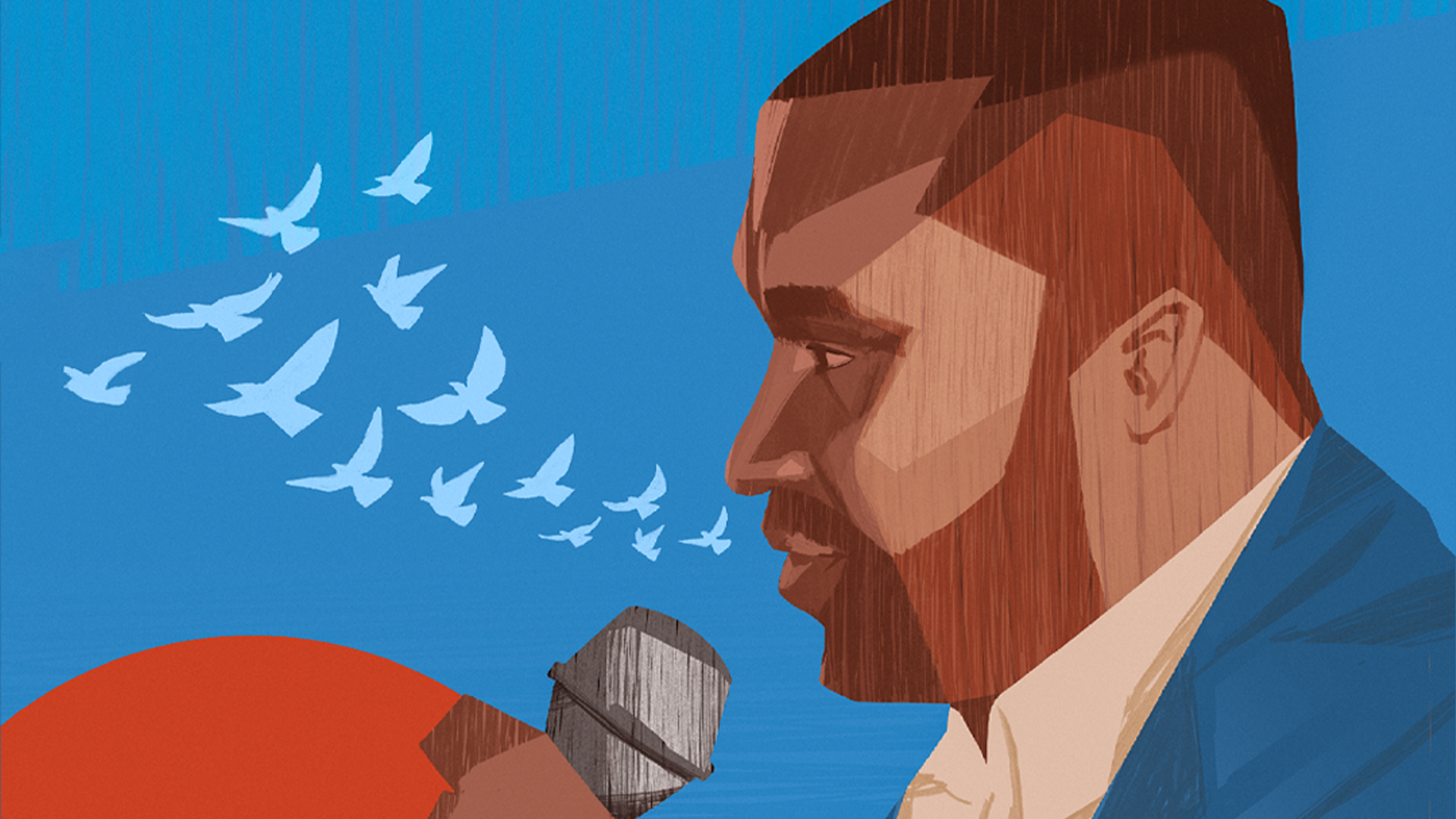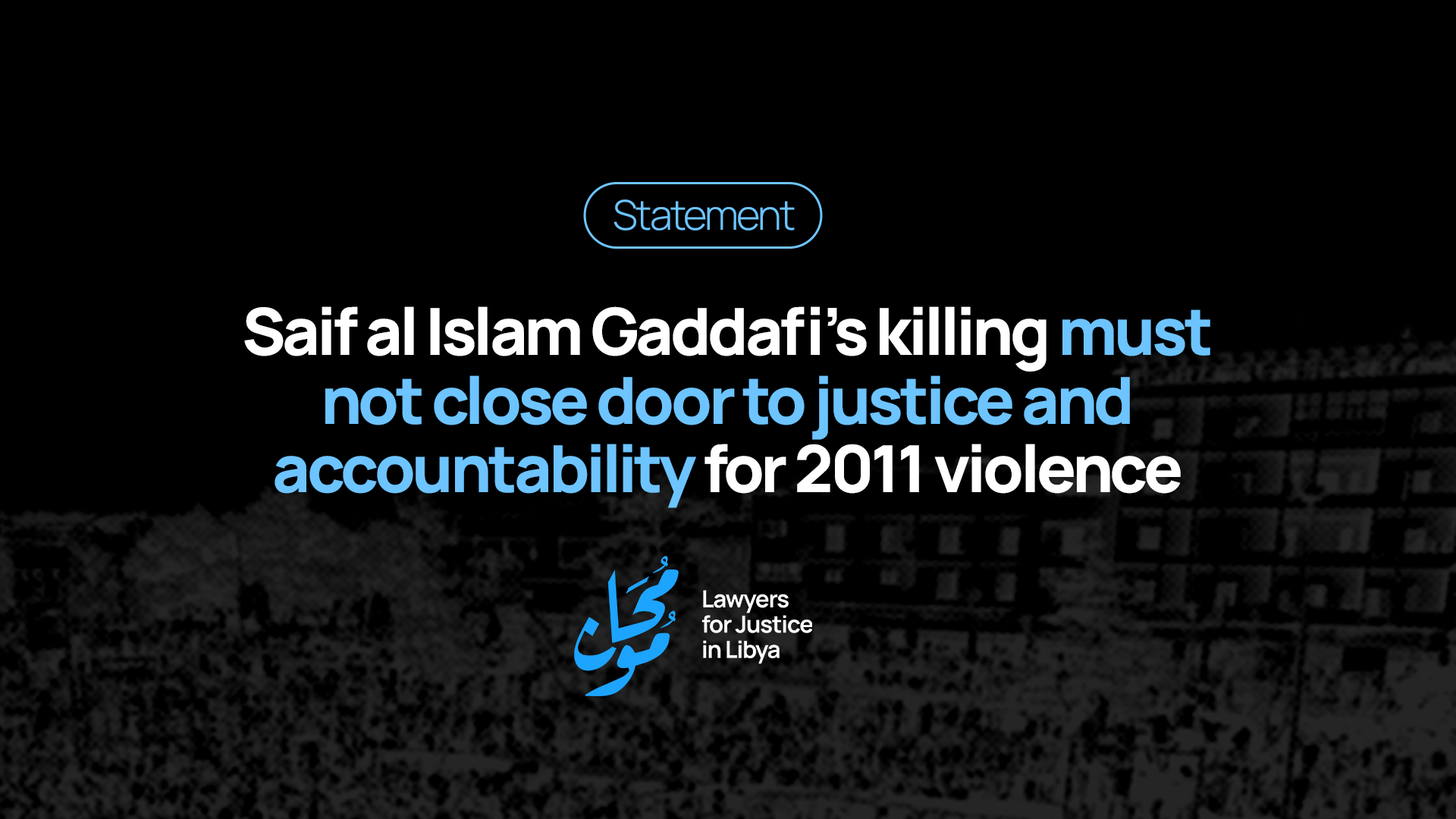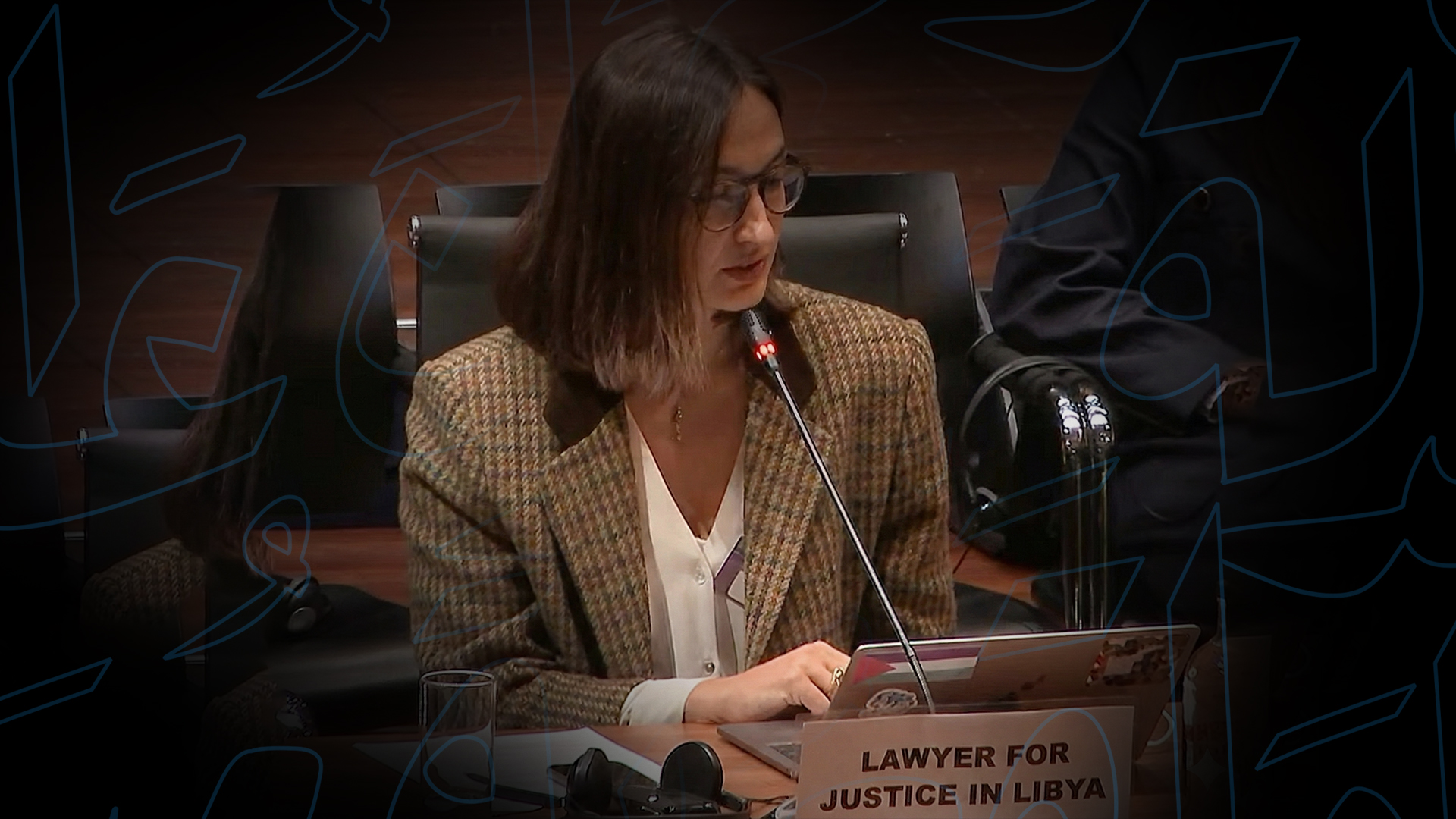World Day of International Criminal Justice – 17 July 2022
Today marks three years since the disappearance of Libyan human rights defender and member of the Tobruk-based House of Representatives Siham Sergiwa. Siham was abducted from her home in Benghazi in 2019. Despite claims of an investigation into her case by the Libyan authorities, Siham’s fate and whereabouts remain unknown. Nobody has been held accountable for her disappearance. Siham’s case is one example of the ongoing crimes committed in Libya that remain unaccounted for.
This day also marks International Day of International Criminal Justice. Today, Lawyers for Justice in Libya (LFJL) highlights the urgent need for the International Criminal Court (ICC) to play a more prominent role in Libya by stepping up investigations and potential prosecutions, and providing a meaningful response to the Libyan people’s demands for justice and accountability. For years, justice in Libya has been impeded by cycles of violence, weak and ineffective law enforcement, and inadequate legal frameworks. A study recently published by LFJL found that 79 per cent of 388 respondents believe that the Libyan criminal courts alone are currently incapable of delivering impartial and independent justice.
“Libyan judges are simply not fit for the judicial system because their minds are still on the Gaddafi law school. International courts must be involved so that the new generation learns the basic principles of law.” – Young Amazigh woman from Tripoli
The same study revealed a clear call from Libyans for accountability, truth, reparations. Ninety-six per cent of survey respondents supported criminal prosecutions for past and ongoing serious crimes and gross violations. As victims and their families currently have nowhere to go to satisfy this urgent need, international justice mechanisms must fill the gap.
The ICC has been investigating serious international crimes committed in Libya since 2011, following a referral by the United Nations Security Council. Since then, the ICC has made little tangible progress in providing accountability to victims and affected communities, and it has largely failed to positively engagement them. Ninety per cent of respondents to LFJL’s recent study said they knew nothing or very little about the ICC. Only 38 per cent of respondent stated that they trusted international justice mechanisms such as the ICC, with criticism particularly coming from civil society organisations.
“...Some of the victims are unaware of the existence of the ICC as there is a lack of awareness about the ICC in Libya. And by this we mean that people are not introduced or educated about the Court’s proceedings and the complaints process. The public in general and the victims in particular are not being informed about it, for example no one knows what has become of the Libyan situation” – A member of Libyan civil society
“The victims with whom I’ve been in contact are willing to resort to international actors, however they are reluctant because they don’t trust them and because protection measures are not clear to them.” – A member of Libyan civil society
Siham’s case is emblematic of the rampant impunity with which gross human rights violations continue to be perpetrated across Libya. We continue to call for accountability for her disappearance, and for justice for victims of all crimes in Libya.
For justice in Libya, the ICC remains vital. To play a more effective role in Libya, it must drastically improve its outreach and communication to affected communities in the country and ensure that victims can meaningfully participate in the international justice process before the ICC. This includes developing an effective outreach strategy through proactive collaboration between relevant organs of the Court that is tailored to the Libyan context.
The ICC must also strengthen its relationship with Libyan civil society, which should be based on mutual respect and genuine two-way communication. Only by ensuring that victims and affected communities are informed and engaged in its work, will the ICC be able to meaningfully contribute to peoples’ demand for justice in Libya.
“The ICC has let us down, and despite this, we are always ready to submit any information it might need” – A member of Libyan civil society
“Hundreds of victims want to reach out to the Court, but do not know how. Even for civil society organisations it is difficult.” – A member of Libyan civil society





